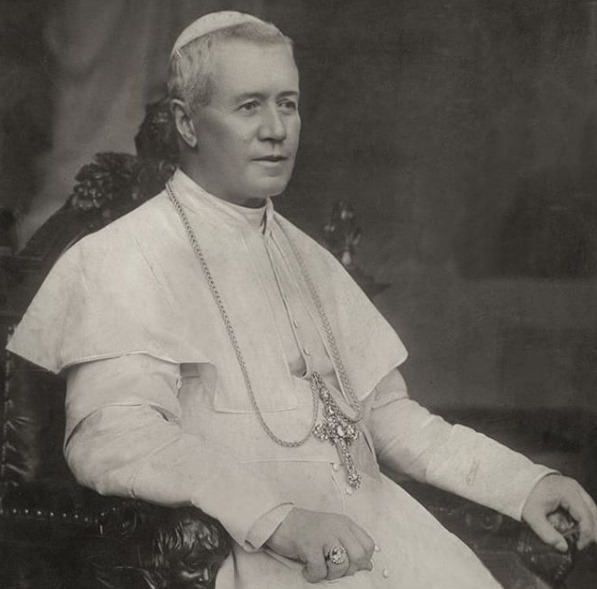
Today, August 21, is the memorial of Pope St. Pius X.
Born Giuseppe Melchiorre Sarto in 1835, he was the son of Giambattista Sarto, a mailman, and Margherita Sanson, a dressmaker.
At age 11, he felt called to the priesthood. He studied at the seminary of Padua, Italy, and was almost always at the top of his class.
He was ordained by St. Giovanni Antonio Farina in 1858 and became Patriarch of Venice in 1893. He was chosen 257th pope in 1903, taking the name Pius X.
Pope Pius X distinguished himself for being less formal and very approachable. Priestly formation became his priority and reformed the liturgy. He wanted quality preaching– clear and simple sermons, the better for the people to understand. Gregorian chants came back in his papacy. He revised the Breviary, and teaching of the Catechism.
He issued decrees on early Communion (age 7 instead of 12 or 14 as previously). Pius X destroyed the last vestiges of Jansenism by advocating frequent and even daily Communion.
He fought Modernism, which he denounced as “the summation of all heresies,“ and reorganized the Roman curia, and the other administrative elements of the Church.
Pius X worked against the modern antagonism of the state against the Church and modernized the codification of canon law. He encouraged everyone to read the Bible, and supported foreign missions. His will read: “I was born poor; I lived poor; I wish to die poor.”
Before his death, Pius X granted private audiences with the sick and the marginalized. He died of natural causes at age 79 in 1914.
Venerable Pope Pius XII beatified (1951) and canonized (1954) Pius X.